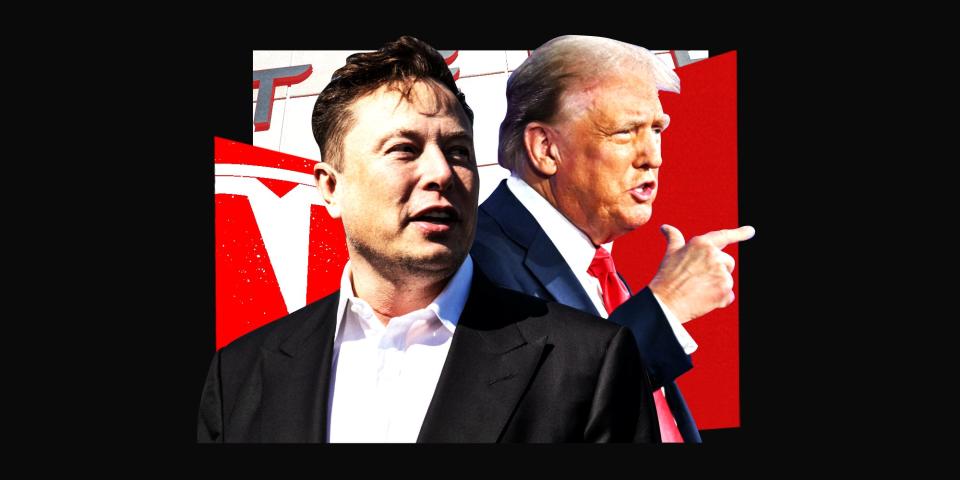The Super Selfish Reason Why Elon Musk Is All In on Trump
Since Elon Musk announced his support for Donald Trump, many have been puzzled by this seemingly contradictory alignment. Musk, the CEO of Tesla and a prominent figure in the electric vehicle (EV) industry, has long been associated with the push for sustainable energy. However, his backing of a politician known for cozying up to fossil fuel executives raises questions about his true motivations.
The Competitive Landscape
Musk's support for Trump can be traced back to the competitive pressures Tesla faces in the evolving automotive market. The Inflation Reduction Act (IRA), a significant legislative achievement of President Joe Biden, has incentivized traditional automakers to ramp up their EV production. This has led to increased competition, forcing Tesla to cut prices and engage in a price war that has severely impacted its profitability. Over the past year, Tesla's profits have plummeted by 45%, and its market share has dipped below 50% for the first time in its history, down from a peak of 80%.
A Self-Serving Strategy
During a recent investor call, Musk revealed his true intentions. While he acknowledged the challenges posed by increased competition, he suggested that a Trump presidency could be beneficial for Tesla. Musk indicated that repealing the IRA would be "devastating" for Tesla's competitors, allowing the company to regain its competitive edge. This admission underscores Musk's primary concern: maintaining Tesla's dominance in the EV market, even if it means supporting a candidate who may undermine broader climate initiatives.
The Irony of Government Support
Despite Musk's desire to dismantle the IRA, Tesla continues to benefit from government tax credits that predate the law. These credits allow Tesla to sell carbon offsets to traditional automakers, providing a significant revenue stream. In the last quarter, Tesla earned $890 million from these credits, a figure that has doubled from the previous quarter. Musk's willingness to accept government intervention when it benefits Tesla, while opposing it for competitors, highlights a self-serving approach to regulation.
The Slow Pace of Innovation
Tesla's struggles can also be attributed to its slow pace of innovation. The last major model release, the Model Y, occurred in 2019, and the company has faced increasing pressure from state-backed competitors in China and a resurgent legacy auto industry in the U.S. To counteract this, Tesla has resorted to aggressive price cuts, which have further strained its financials. The company's recent earnings report revealed a significant drop in revenue and vehicle deliveries, raising concerns among investors.
A Future Built on Autonomy
Musk has attempted to reassure investors by promoting Tesla as an AI company rather than just a car manufacturer. He has made grand promises about future innovations, including autonomous robotaxis and a new humanoid robot, despite a history of unmet deadlines. However, the reality remains that Tesla's core business is still heavily reliant on vehicle sales, and the competition is intensifying.
The Quest for Time
Musk's support for Trump is ultimately a strategic move to buy time for Tesla. By aligning with a candidate who has pledged to eliminate the IRA and potentially roll back regulations, Musk hopes to slow the competition and preserve Tesla's market position until new products can be introduced. This self-serving strategy reveals a shift in focus from a commitment to sustainability to a singular focus on corporate survival.
Conclusion
Elon Musk's support for Donald Trump is driven by a desire to protect Tesla's market share in an increasingly competitive landscape. While he may publicly champion the cause of electric vehicles, his actions suggest a more selfish motivation: maintaining dominance at any cost. As the automotive industry evolves, Musk's alignment with Trump raises critical questions about the future of sustainability and the true priorities of one of its most prominent advocates.
